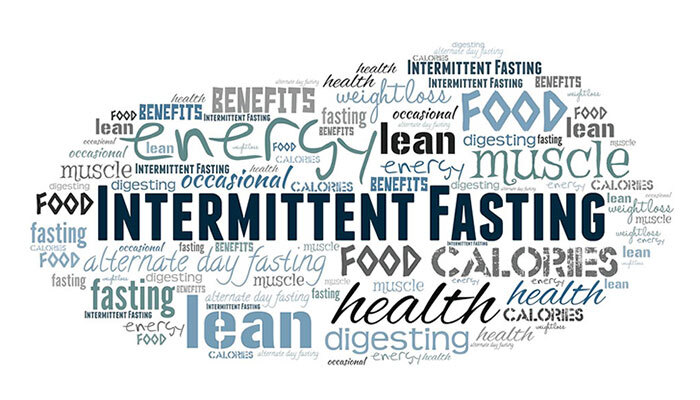Intermittent fasting, which sometimes refers to 16:8 fasting or 16:8 diet plan is among the most popular types of fasting. During this fasting individual needs to fast for 16 hours a day and can consume food in the remaining 8 hours.
Weight loss, fat loss, and prevention from 2 types of diabetes are some of the major benefits of following an intermittent fasting plan.
Below we have provided a complete guide on intermittent fasting, Benefits and side effects, and also how to do it.
How to do Intermittent fasting
One of the most common ways to follow the 16:8 diet plan is by choosing the 16-hour fasting window that includes sleeping time. It’s among the easiest methods as nearly half of our time is spent sleeping.
Some Dietitians advice consuming meals early in evening, as metabolism process tends to slow down after it. However, that’s not possible for all of us. Some of us won’t be able to consume food that early yet it’s advisable to complete eating before 2-3 hours before bed.
Some of the most common and easy fasting windows include:
- 9 am to 5 pm
- 10 am to 6 pm
- 12 pm to 8 pm
During this time frame, individuals are free to eat meals and snacks as per their convenience. Eating at regular intervals is essential to keep diabetes in check and avoid excessive hunger.
You may need to check for an appropriate diet plan according to your lifestyle.
Some Useful Tips

While it’s not mentioned what to eat and what not in intermittent fasting, it is always advisable to eat healthily and avoid junk food. Eating too much unhealthy food can lead to weight gain and various diseases.
A balanced diet comprises of:
- Fresh, frozen, or canned fruits and vegetables.
- Brown rice, barley, Oats, and other whole grains.
- Poultry, fish, beans, lentils, cheese, eggs, and other rich sources of protein.
- Fatty fish, Avocados, coconut, olive oil, and other sources of healthy fats.
Intermittent fasting diet plan allows the consumption of calorie-free beverages- like water, unsweetened tea, or coffee. It is essential to take fluids throughout the day to stay hydrated.
Tips need to follow during Intermittent fasting
- To suppress the appetite drink cardamom herbal tea during the fasting window.
- Consumption of water is essential throughout the day.
- To trigger hunger exercise before or during the eating window.
- Try meditation during the fasting period
- Reduce watching television during fasting to avoid the visuals of food.
Health Benefits

Even after years of studying Intermittent fasting, research finds are contradictory and indecisive. However, the researches indicate that intermittent fasting provides the following health benefits.
-
Weight loss
Eating during a specific time window can reduce the number of calorie intake. In addition, it also enhances the metabolism process. A study suggests that intermittent fasting leads to loss of weight and body fat more effectively comparative to regular calorie restriction.
-
Disease prevention
Intermittent fasting comes in handy as an alternative way to traditional restriction of calories for type 2 diabetes and weight loss for people with obesity. People who follow 16:8 diet plan suggest following it can prevent us from several medical conditions:
- Type 2 diabetes
- Heart Conditions
- Some kind of cancers
- Neurodegenerative diseases
-
Extended Life span
A study on animals suggests that Intermittent fasting helps them to live a longer life. During short-term fasting increased the life span of female mice.
According to the National Institute of aging even after years of research, scientists still couldn’t explain how Fasting helps in increasing life-span.
Side Effects and risks

Intermittent Fasting possesses some potential side effects and risks, it’s not advisable to follow for everyone. Some of the risks and side effects include:
- Weakness
- Tiredness
- Overeating, or consuming unhealthy food
- Reflux or heartburn due to overeat
Some researches proved that intermittent fasting is more beneficial to men than women. It tends to reduce fertility in women.
16:8 diet plan is not going to be a good option if you have a history of eating disorders. According to the National Eating Disorders Association, intermittent fasting can be dangerous for people with eating disorders.
Intermittent Fasting or 16:8 diet plan won’t be suitable for people with anxiety and depression issues, pregnant women, trying to conceive, or breastfeeding.
Diabetes

Though Intermittent fasting helps in preventing diabetes, it may be appropriate for people who already have this condition.
For patients with type 1 diabetes, 16:8 diet plan is strictly restricted. However, people with type 2 diabetes can follow the diet plan under a doctor’s supervision.
Conclusion
Though the 16:8 diet plan is the best way to perform intermittent fasting, it’s essential the individual must consume fiber-rich food and stay hydrated throughout the day.
Though Intermittent fasting is comparatively easier than other forms of fasting, it’s not advisable for everyone to follow. Advice from a doctor or dietitian is recommended before adopting a 16:8 diet plan.

